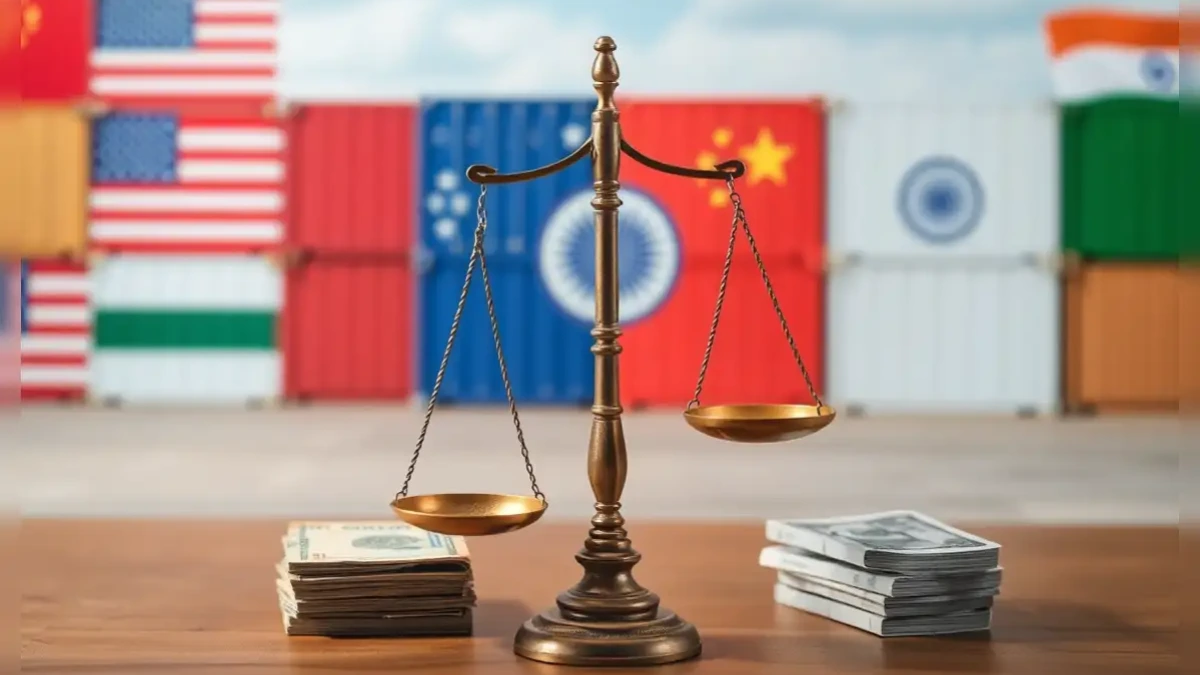
US Immigration and Customs Enforcement (ICE) acting director Todd Lyons recently released a letter outlining a major change to the agency’s deportation practices: migrants may now be transported to nations other than their own with as little as six hours’ notice. When Immigration and Customs Enforcement notifies migrants that they will be deported to a “third country,” they typically wait for at least 24 hours. Deportations may, however, occur considerably more quickly in “urgent situations,” according to the July 9 document, highlighting the Trump administration’s efforts to expedite the removal process.
What Does the Memo Say?

The memo’s stated policy empowers ICE to deport migrants to third-world nations that have pledged not to torture or punish them, and it does so without requiring further judicial procedures. This strategy differs from earlier guidelines, which often called for a more thorough examination and safeguards for migrants prior to their transfer to a foreign nation.
ICE hopes to act quickly in cases that are considered urgent by reducing the notification period from a minimum of 24 hours to maybe as short as six hours. The Trump administration’s larger strategy to strengthen immigration enforcement and hasten the removal of those deemed unsuitable to remain in the United States is reflected in the agency’s increased capacity to deport migrants.
Trump Announces 35% Tariff on Canadian Imports, Expands Trade War with New Global Tariffs
Legal and Political Context

Following a significant legal development earlier this summer, this new ICE instruction was issued. The US Supreme Court in June overturned a lower court order that had prevented deportations to third countries unless the validity of migrants’ claims that they feared persecution in those nations was thoroughly examined. ICE was able to move swiftly since this decision reopened the administration’s ability to carry out deportations without these kinds of checks.
The immediate effect of the Supreme Court’s verdict was demonstrated when ICE deported eight migrants to South Sudan shortly after it was rendered. These migrants were from Cuba, Laos, Mexico, Myanmar, Sudan, and Vietnam. According to reports, the Trump administration has also been pressuring officials in Guinea-Bissau, Gabon, Senegal, Liberia, and Mauritania to accept the deportation of migrants from other countries. This suggests a deliberate attempt to increase the number of potential third nations for deportations.
Trump’s BRICS Tariff Threat Casts Shadow Over India-US Trade Deal
The Administration’s Rationale

The Trump administration argues that this policy is a practical means of more effectively expelling those who shouldn’t be in the United States, particularly those with criminal histories. According to the administration, deportations must be accelerated for the sake of public safety and the integrity of the immigration system. ICE can decrease backlogs and concentrate resources on priority cases by lowering legal obstacles and delays.
According to the administration, the United States may dump situations where migrants do not qualify for asylum or other protections while also ensuring humane treatment by sending them to third countries that agree not to persecute them.
Trump Quietly Expands Trade War Strategy Across Asia to Undermine China
Critics Sound the Alarm

Despite these explanations, detractors have voiced grave worries about the policy’s ramifications. Many contend that sending people to third nations without much warning and frequently without a full legal examination is harsh and harmful.
One significant concern is that migrants can be transferred to countries where they confront unstable and dangerous conditions, lack social ties, or do not understand the language. In certain situations, the receiving nation’s pledge to refrain from persecuting or torturing migrants might not be consistently upheld, putting vulnerable people at risk..
The new strategy circumvents fundamental due process rights and statutory protections, according to legal experts for migrants. It “falls far short of providing the statutory and due process protections that the law requires,” said Trina Realmuto, a lawyer for a group contesting the third-country deportations in court. She and others are concerned about the rights of migrants being compromised in the name of expediency and administrative ease.
Markets Track Trump’s Trade Actions as the Tariff Deadline Draws Near
Broader Implications and Human Impact

The US’s commitment to international refugee safeguards and human rights is called into question by the decision to expedite deportations to third nations with little warning. People who are escaping persecution, violence, or extreme poverty may be disproportionately impacted by the policy, which would force them into strange and possibly hostile situations.
Additionally, migrants find it challenging to obtain legal representation, prepare their cases, or even comprehend where they are being transferred due to the lack of openness and the speed at which deportations may now take place. In migrant communities, this adds to an atmosphere of anxiety and uncertainty.
Human rights organisations caution that the emotional and physical health of migrants may suffer long-term consequences as a result of such measures. To avoid putting people in danger, they need more stringent legal examinations and more comprehensive assessments of third-country situations.
Conclusion
Under the Trump administration, US Immigration and Customs Enforcement new policy, which allows deportations to third countries with as little as six hours’ notice, marks a significant move towards accelerated removals. While supporters contend that it improves public safety and efficiency, detractors draw attention to the possibility of grave violations of due process and human rights.
As legal disputes develop and the policy is put into effect, the US must strike a balance between its humanitarian commitments and immigration enforcement. With fewer protections than ever before, the government is moving to speed up deportations, putting the lives of vulnerable migrants many of whom are already escaping dire circumstances at risk.
